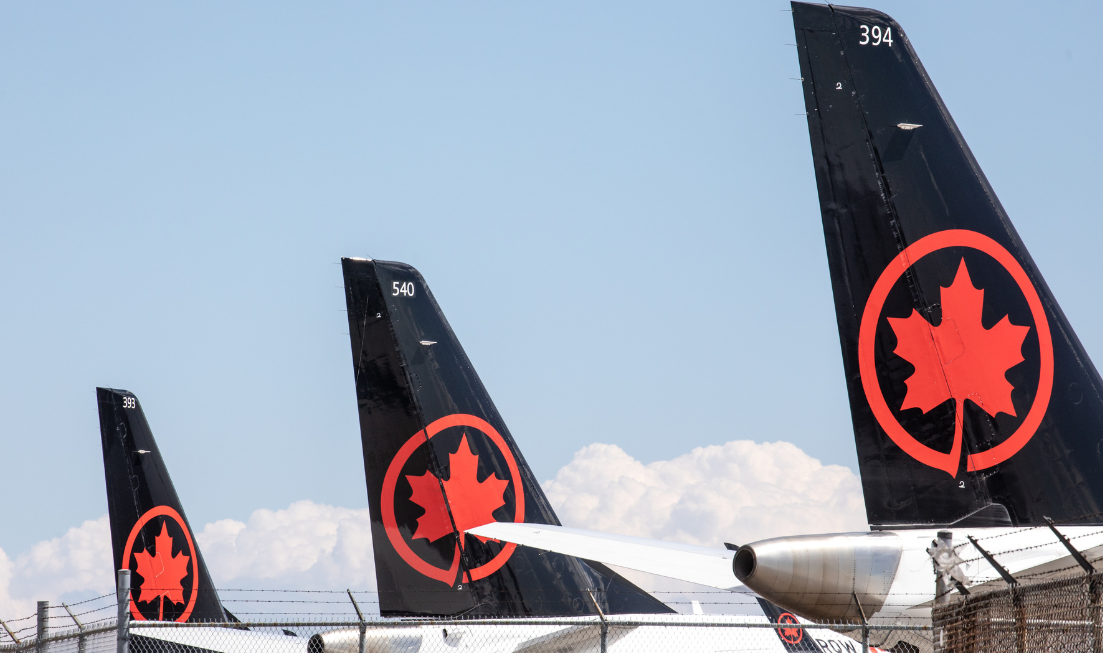Air Canada pilots and the ‘strike wave’ in Canadian labour

Air Canada’s pilots are among about two million workers in Canada who have either walked the picket line or come close to it in the past five years, Stephanie Ross notes. (Adobe Stock image)
BY Andrea Lawson
September 17, 2024
Air Canada reached a tentative deal with the union representing thousands of its pilots on Sunday, avoiding service disruptions that were expected to cause major headaches for thousands of Canadian travellers.

Negotiations had been ongoing for over a year and leading up to the agreement, the two sides remained far apart on the central issue of pilot compensation.
If ratified, pilots could see a 42 per cent raise over four years, putting them in line with their counterparts in the U.S. and at other Canadian airlines.
With labour disputes making headlines more often, Stephanie Ross, Associate Professor in the School of Labour Studies, explains the new energy she sees in the Canadian labour movement.
Could you give us a bit of background on the labour negotiations at Air Canada? How does it compare to other labour issues?
Like a lot of workers across Canada, pilots are trying to catch up in the face of generations-high inflation over the last few years. They just emerged from a 10-year collective agreement in 2023, which held their wage increases at 2 per cent per year, so their real wages fell.
It’s a situation that most workers in Canada have experienced since 2021 and it’s been driving lots of tense negotiations and strikes.
Workers in general have a lot more leverage in bargaining right now, given relatively low unemployment and labour shortages in some sectors. And pilots have even more leverage than the average worker — they have irreplaceable skills that are in very short supply, even more so since so many pilots took retirement packages during the worst days of the pandemic in 2020.
You can’t run an airline without them, and they are certainly trying to make the most of this power.
What’s your sense of sympathy from the public for pilots or other striking workers?
Overall, public sympathy for striking workers has increased over the past several years. Most people understand the economic pressures people are under because they are experiencing them too.
And when unions make gains in a tight labour market, they spill over into non-union sectors because those employers have to keep up. In the case of pilots, it’s true that these are very well-paid workers and that travellers might be quite inconvenienced, but they are also highly skilled, which people generally respect. Junior pilots also really lagged behind their more senior counterparts in Canada and the U.S.
And it doesn’t hurt that Air Canada is a widely criticized company with whom travellers are often very frustrated. Public opinion on the whole sided with the pilots, who might have benefited from the sentiment that “the enemy of my enemy is my friend.”
Why do you think we’re hearing so much about labour issues and job action this year? Is there new excitement in Canada’s labour movement?
In short, yes, there is new excitement. Unions are delivering some much-needed wage growth after years of stagnation. Since 2022, we’ve definitely been experiencing a strike wave the likes of which we’ve not seen since the late 1970s.
Over the last five years, about two million workers in Canada in every kind of work you can think of have walked a picket line. And they have been winning improvements to their wages and work lives.
There is new energy being breathed into organizing drives at Amazon, Walmart, Starbucks, platform-driven workplaces like Uber, the cultural industries — and the strike wave is a big part of that. When labour movement is fighting and winning, more people want to be part of it.
What’s your sense of what the future holds?
We’ve not seen the end of labour negotiations at Air Canada yet — flight attendants’ 10-year agreement is also expiring soon.
As to the more general rise in strike and other kinds of labour action, we’ve not seen the end of that yet either. And it’s a good thing — it shows people believe they can fight for and win better lives. It’s a hopeful sign.


